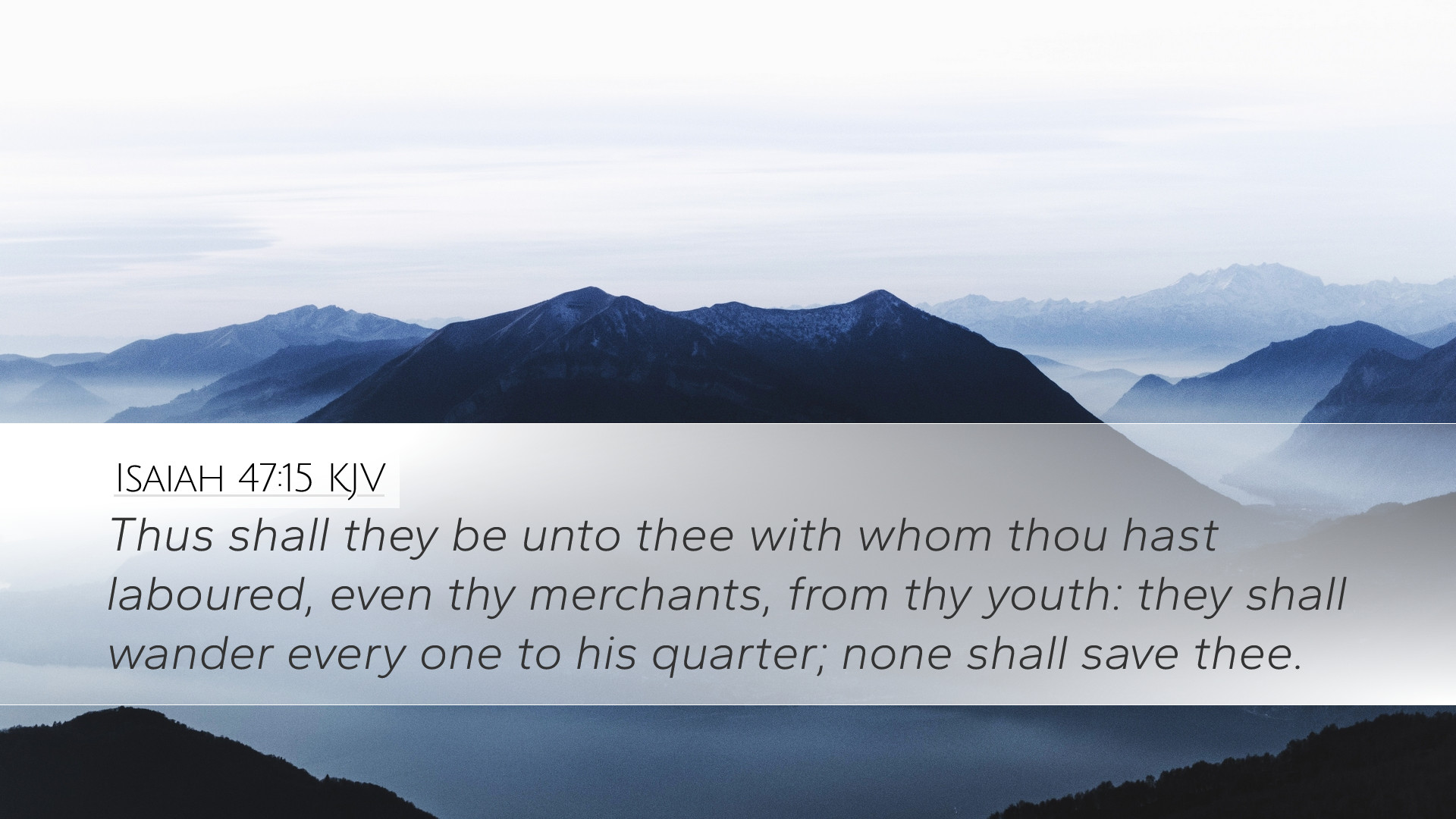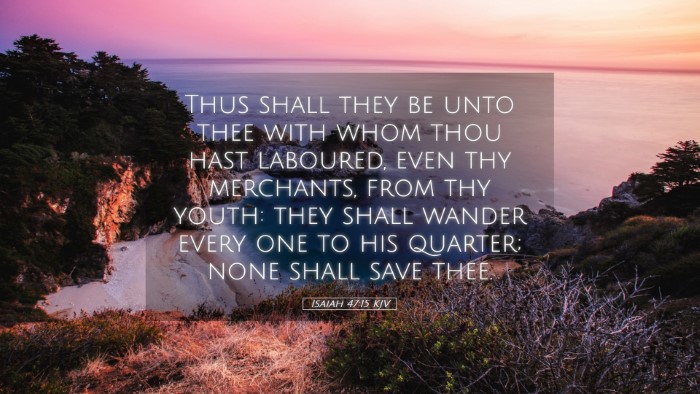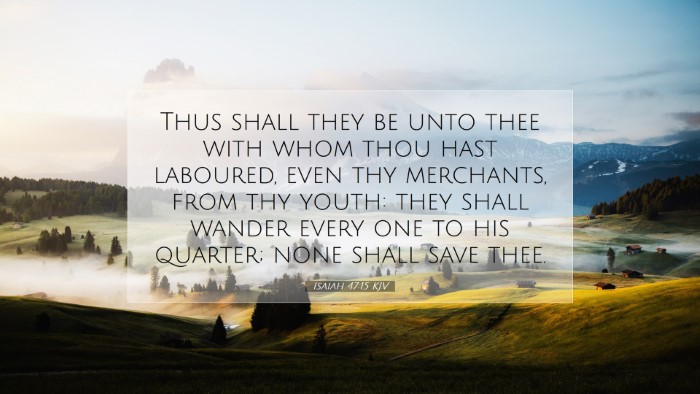Commentary on Isaiah 47:15
Text of Isaiah 47:15: "Thus shall they be unto thee with whom thou hast labored, even thy merchants, from thy youth: they shall wander every one to his quarter; none shall save thee."
Introduction
Isaiah 47 presents a powerful message of judgment against Babylon, personified as a desolate woman who has relied on her own strength and wisdom. This verse serves as a conclusion to the lamentation against Babylon’s impending doom, emphasizing the futility of her trust in the merchants and resources she relied upon. In these verses, we find insights from various public domain commentaries that provide a deeper understanding of the text’s implications.
Context and Historical Background
The historical backdrop of Isaiah's prophecy is critical in understanding the gravity of the message against Babylon. Babylon, having once been a mighty empire, is depicted as descending into destruction due to its idolatry and moral corruption.
- Babylon's Prosperity: Babylon enjoyed prosperity through its trade and alliances, relying heavily on its merchants.
- Divine Judgment: Isaiah prophesies that their reliance on earthly security will lead to desolation as God’s judgment is pronounced against them.
Commentary Insights
Matthew Henry's Commentary
Matthew Henry explains the futility of trusting in false security. He highlights that the merchants who were once captivated by Babylon's power will ultimately abandon her in her time of need:
- Henry states that "none shall save thee" embodies the finality of Babylon's condition, where not even her allies will be able to provide assistance.
- He emphasizes that the merchants, who have made a living off the backs of Babylon, are likened to “wandering” individuals who scatter in the face of imminent destruction. The illusion of security derived from commerce and trade would be obliterated.
Albert Barnes' Notes on the Bible
Albert Barnes provides a nuanced look at the phrase "from thy youth." He interprets this to mean that Babylon had long relied on its merchants and trade:
- He draws attention to the inevitable collapse of such alliances, suggesting that their cessation will lead to complete abandonment.
- The imagery of wandering emphasizes the chaotic state of the empire at the time of judgment, revealing that there would be no disciplined response to need or disaster.
Adam Clarke's Commentary
Adam Clarke offers additional depth by examining the emotional state of Babylon at the time of her judgment:
- Clarke points out that the abandonment by merchants signifies not only physical loss but also emotional desolation. The trust that Babylon placed in these relationships will yield disappointment and sorrow.
- He additionally notes that the phrase “none shall save thee” reflects a stark truth: the realization that all reliance on human ability is ultimately misplaced when aligned against divine judgment.
Theological Implications
This verse carries rich theological lessons, particularly relating to the nature of trust and reliance upon worldly constructs:
- The Illusion of Security: The text illustrates how the powerful—those who seem invincible—can find themselves abandoned when divine judgment is enacted. This serves as a reminder to nations and individuals alike.
- The Sovereignty of God: The ultimate power of God's judgment supersedes all earthly alliances. Babylon’s fate serves as a representation of God’s sovereignty among nations, affirming that no one can escape His decrees.
- Human Relationships under Judgment: The commentary illustrates that human relationships, whether mercantile or social, may falter in the face of divine reckoning, urging a reliance on God rather than on unstable human systems.
Conclusion
Isaiah 47:15 presents a poignant reminder of the transient nature of human dependence. The combined insights from Matthew Henry, Albert Barnes, and Adam Clarke bring forth a comprehensive understanding of Babylon's fate—a powerful warning to all who may place their faith in worldly strength. This text calls both leaders and individuals to reconsider where their trust lies and to remember the ultimate reliability of God alone in times of crisis.


